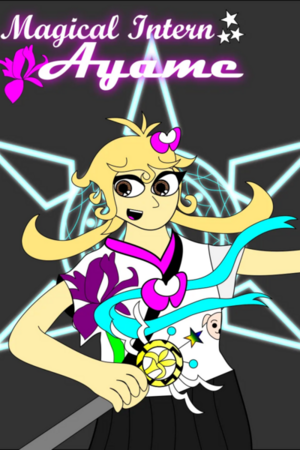Chapter 8:
Hidden Strength
Earthly Solutions
The transformation in Mr. Tanaka's demeanor over the next week was nothing short of miraculous. What had started as a simple consultation with Megan had evolved into what could only be described as the most comprehensive financial audit in the history of fantasy economics.
I found him that morning hunched over his makeshift desk in our tiny inn room, surrounded by an explosion of paperwork that would have made our old office look minimalist. Receipts, component price lists, spell casting logs, equipment depreciation schedules, and what appeared to be a hand-drawn organizational chart of the entire magical reagent supply chain.
"Mr. Tanaka," I said carefully, "did you sleep at all last night?"
"Sleep?" He looked up with eyes that were bloodshot but blazing with professional excitement. "Yamamoto, do you realize what we've discovered? This isn't just a case study in operational optimization—this is a complete revelation about the fundamental structure of fantasy world economics!"
He gestured enthusiastically at his notes, which looked like the work of someone who had achieved enlightenment through spreadsheet analysis.
"Megan's component costs," he continued, "aren't just business expenses. They're consumable business inventory. Under any reasonable accounting framework, she should be able to claim massive deductions for cost of goods sold!"
I blinked. "Cost of goods sold? For spell components?"
"Exactly!" He pulled out what appeared to be a ledger book he'd created specifically for magical inventory tracking. "Fire stones, mystical reagents, crystallized phoenix ash—these are all direct inputs into her service production process. Every component she consumes in the course of providing magical services to adventuring parties represents a legitimate business expense that reduces her taxable income!"
The enthusiasm in his voice was infectious, but also slightly concerning. This was the same man who had been having anxiety attacks about missing quarterly reports just days ago.
"But how much could that actually save her?" I asked.
Mr. Tanaka's smile was downright predatory. "Based on my calculations, approximately forty percent of her annual component costs can be classified as cost of goods sold, with another thirty percent qualifying for business expense deductions. Combined with proper depreciation schedules for her spellbooks and equipment..."
He showed me a page covered in detailed calculations that looked like they'd been prepared for a doctoral thesis in theoretical accounting.
"She's been overpaying her taxes by at least twelve hundred coins per year."
"Twelve hundred?" I stared at the numbers. "That's... that's more than most people here make in six months."
"And that's just from basic optimization! We haven't even begun to explore advanced strategies like equipment leasing arrangements, professional development deductions, or home office expenses for spell research!"
I watched him flip through pages of notes with the focused intensity of someone who had found their true calling. This wasn't just professional competence—this was artistic passion applied to financial regulation.
"There's more," he said, pulling out another set of calculations. "I've been analyzing the broader implications of these optimization techniques across different adventurer classes. Warriors can deduct equipment maintenance and replacement costs. Thieves can claim tool expenses and information gathering fees. Clerics can deduct temple donations and divine focus costs."
"You've been calculating deductions for every adventurer class?"
"Not just calculating—I've been revolutionizing." His eyes had the gleam of someone who had discovered a new continent. "Yamamoto, no one in this world has ever applied systematic tax optimization to adventuring activities. They're operating under the assumption that taxation is just a flat burden to be endured rather than a complex system that can be navigated strategically."
He pulled out what appeared to be a business plan that was easily fifty pages long.
"I've identified seventeen distinct categories of business deductions that apply to standard adventuring activities, twelve methods for optimizing equipment depreciation schedules, and at least six strategies for converting personal expenses into legitimate business costs."
I flipped through the document, which was written with the meticulous detail of someone who had found genuine intellectual satisfaction in solving complex problems.
"This is incredible work," I said, and I meant it. "But how are you going to explain all this to Megan? This is pretty advanced stuff."
"That's the beautiful part," Mr. Tanaka said, his smile widening. "I don't need to explain the complexity—I just need to demonstrate the results."
He pulled out a single sheet of paper that appeared to be a summary report.
"Megan's current annual income: 3,600 coins. Current annual expenses: 2,100 coins. Net income after taxes: 1,200 coins."
I nodded. Those were the numbers we'd established during our initial consultation.
"Megan's optimized annual income with proper deductions and strategic expense categorization: 3,600 coins gross, 2,100 coins in business expenses, but only 900 coins in taxable income after deductions."
He showed me the final calculation.
"Net income after optimized taxes: 1,680 coins. That's a 480 coins annual increase from proper financial management alone."
I stared at the numbers. "You increased her take-home income by forty percent without her having to take a single additional quest or cast a single additional spell."
"Exactly. And that's assuming she doesn't implement any of our operational efficiency recommendations. If she follows our advice about bulk purchasing, vendor negotiations, and strategic quest selection, we could probably get her net income above 2,000 coins annually."
The implications hit me like a lightning bolt. "Mr. Tanaka, if we can do this for every adventurer..."
"We don't just become successful consultants," he finished. "We become the most valuable service providers in the entire economy. Every adventurer, every merchant, every craftsperson, they're all overpaying taxes because no one has ever bothered to optimize their financial management."
I looked around our tiny inn room, trying to imagine what our business could become if we could replicate these results across hundreds of clients.
"How long did it take you to develop all this?"
"Four days of intensive analysis," he said proudly. "But now that I've established the framework, I can probably optimize most standard adventurer finances in two to three hours per client."
"And our fee structure?"
"I'm thinking we charge fifty coins for the initial consultation, plus ten percent of documented tax savings in the first year, plus five percent of ongoing operational improvements." He showed me another set of calculations. "Based on Megan's case alone, that would be approximately 150 coins in fees for delivering 480 coins in value."
"That's a pretty compelling value proposition."
"It's an irresistible value proposition," he corrected. "We're offering to increase people's income by amounts that exceed our fees by factors of three to five. From a client perspective, working with us is basically free money."
His confidence was well-founded. These were concrete, quantifiable benefits that any rational person would want to achieve.
"So what's our next move?"
Mr. Tanaka closed his ledger with the satisfied precision of someone who had just completed a masterpiece.
"Our next move is to meet with Megan and present our findings. Then we document everything, create a standardized process, and start scaling our operations to handle the demand we're about to generate."
"You think word will spread that quickly?"
"Yamamoto," he said, straightening his tie and picking up his briefcase with renewed purpose, "when we demonstrate that we can increase someone's annual income by 480 coins through paperwork optimization, every adventurer in this guild is going to want our services."
"And if they don't believe us?"
"Then we'll have Megan serve as our reference client. Nothing sells financial consulting services like a satisfied customer who can document exactly how much money we saved her."
I watched him organize his materials with the systematic efficiency of someone who had found genuine fulfillment in his work. This wasn't just professional competence—this was artistic passion applied to practical problem-solving.
"You know what?" I said, feeling my own excitement building. "I think you're right. I think we're about to revolutionize this entire economy."
"Not revolutionize," Mr. Tanaka corrected with a smile that was equal parts professional pride and entrepreneurial hunger. "Optimize. We're going to take a system that works poorly and make it work perfectly."
As we headed toward the Adventurers Guild to meet with Megan, I realized that somewhere in the process of solving her financial problems, Mr. Tanaka had discovered something he'd been missing his entire career: the genuine satisfaction that comes from using your skills to make someone's life meaningfully better.
And judging by the spring in his step and the confidence in his voice, I suspected that satisfaction was about to become very, very profitable.
Who knew that interdimensional tax optimization could be so rewarding?




Please sign in to leave a comment.